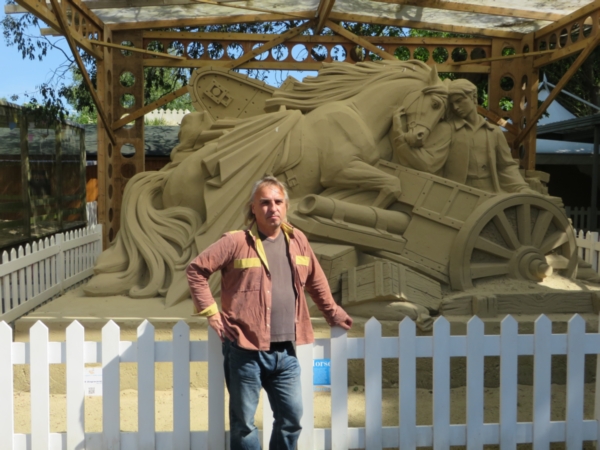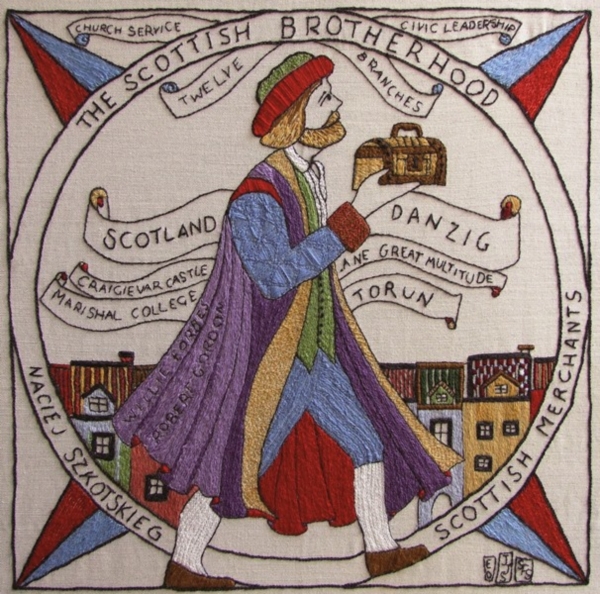Polish Merchants from Weymouth!
Edmund Dudley, of Polish descent, with family support from Susan & Jessica Sutton
As stitchers will well know, some of those who have created the magnificent Diaspora Tapestry have been receiving their personal souvenir copies of the Complete Official Guide by mail; and many others by collection or hand delivery. And since a trip to seaside Weymouth is always brilliantly worthwhile, that was how Edmund Dudley, Susan & Jessica Sutton got their's.
Many may not know but Weymouth is world-famed for its Sand Sculptures @ Sandworld led by Mark Anderson. So a visit to this year's display was more than appropriate as the book was handed over. The picture below shows Ed in front of an excellent example of the range of artworks to be seen - War Horse. It was created by Waczestaw 'Slava' Borecki who lives today in Posnan, Poland.

Why, one might wonder, would our Polish Merchants' panel be stitched by an arts group in Weymouth? Simple really - Ed's father was Polish and settled in Scotland - reverse diaspora so to speak. And Ed is an old friend of Andrew Crummy, our designer, from his earlier life in London. Like most we meet, Ed was surprised to learn of the close trading links between Aberdeen and Danzig.

The tale behind Panel PL 03
With the Polish gentry scorning trade, Scottish merchants entering Poland through the great port at Danzig were keen to reap the possible opportunities. Men like William “Danzig Willie” Forbes, whose commercial success in the Baltic funded the completion of Craigievar Castle, and later Robert Gordon who donated vast funds to Marischal College in Aberdeen, demonstrated the scale of the fortunes to be made. These Scots merchant communities protected themselves by establishing a Scottish Brotherhood with twelve branches across Poland, assuming responsibility for their own governance, internal justice, and the protection of special privileges. Such organisation ensured the Scots were an influential minority.
Published Date: June 15th 2015
|





